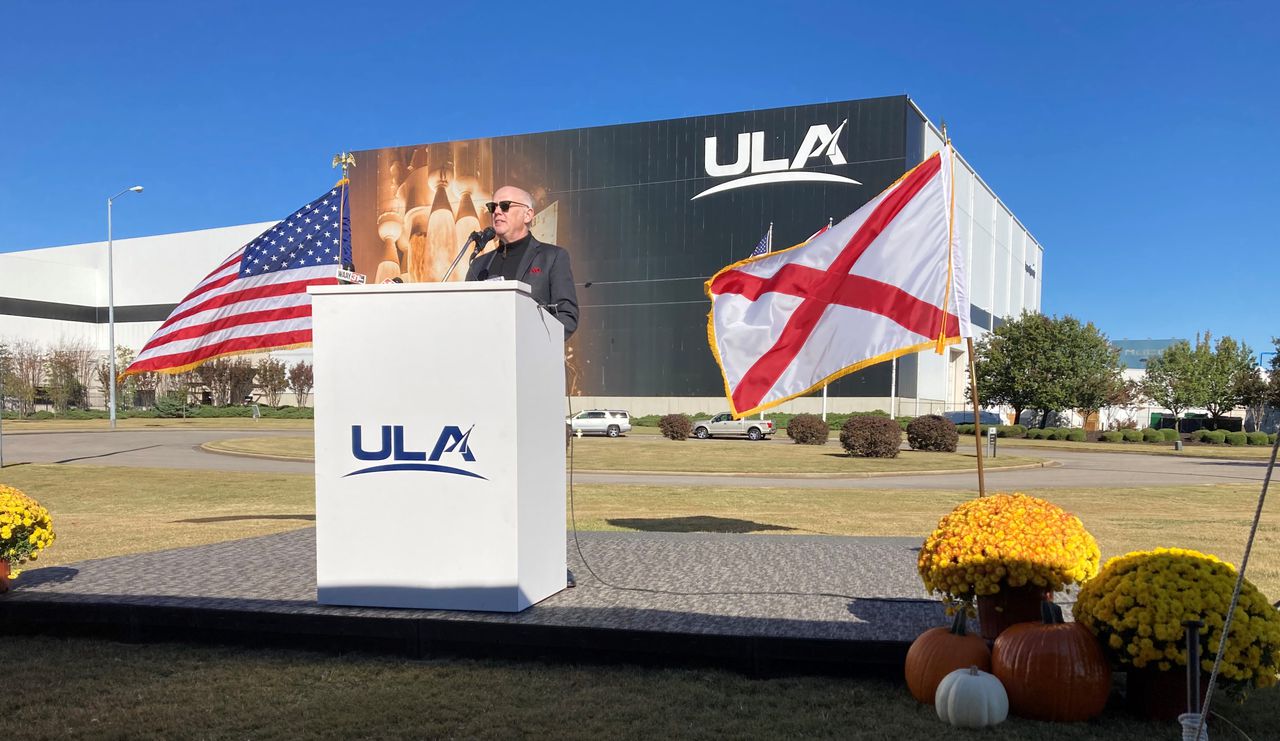ULA begins Alabama rocket plant expansion for huge satellite deal with Jeff Bezos
United Launch Alliance (ULA) and its partner Beyond Gravity broke ground in Decatur today on an expansion to support one of the biggest rocket deals in history.
ULA has a deal with Blue Origin, the rocket company owned by Amazon founder Jeff Bezos, to build 38 big rockets to put internet-delivering satellites in orbit for Blue Origin’s “more than $10 billion” Project Kuiper. Beyond Gravity, the company formerly known as RUAG Space, already operates in Alabama and is the biggest supplier of rocket parts to Europe’s space industry.
ULA President Tory Bruno told the groundbreaking audience the expansion will support “the biggest commercial contract ever awarded in history that will bring a constellation of satellites providing broadband across the planet.”
United Launch Alliance CEO Tory Bruno speaks at an Oct. 27, 2022 groundbreaking event at the company’s big rocket building plant in Decatur, Alabama. The plant is expanding to build rockets for Amazon founder Jeff Bezos’ planned Internet-access satellites.
It will function like Elon Musk’s Starlink Internet delivery satellites. But Bruno, who said he was limited in his comments by the contract between his company and Blue Origin, said Bezos’ satellites will emit less light. Musk’s Starlink has been criticized by astronomers for light pollution and his company is experimenting with ways to lessen its satellites’ light impact.
The rockets that boost Blue Origin’s satellites will be built in Decatur at the now-2-million-square-foot ULA plant on the Tennessee River. The engines will be built at Blue Origin’s expanding Huntsville plant and Beyond Gravity (formerly RUAG Space) will supply 38 nosecones to protect the payloads.
During a tour of the giant plant, groundbreaking guests saw the first Vulcan rocket built for the project with the first Blue Origin engine in place. Each Vulcan will launch 45 satellites on each flight, and the U.S. government has also bought launches on the new rocket.
